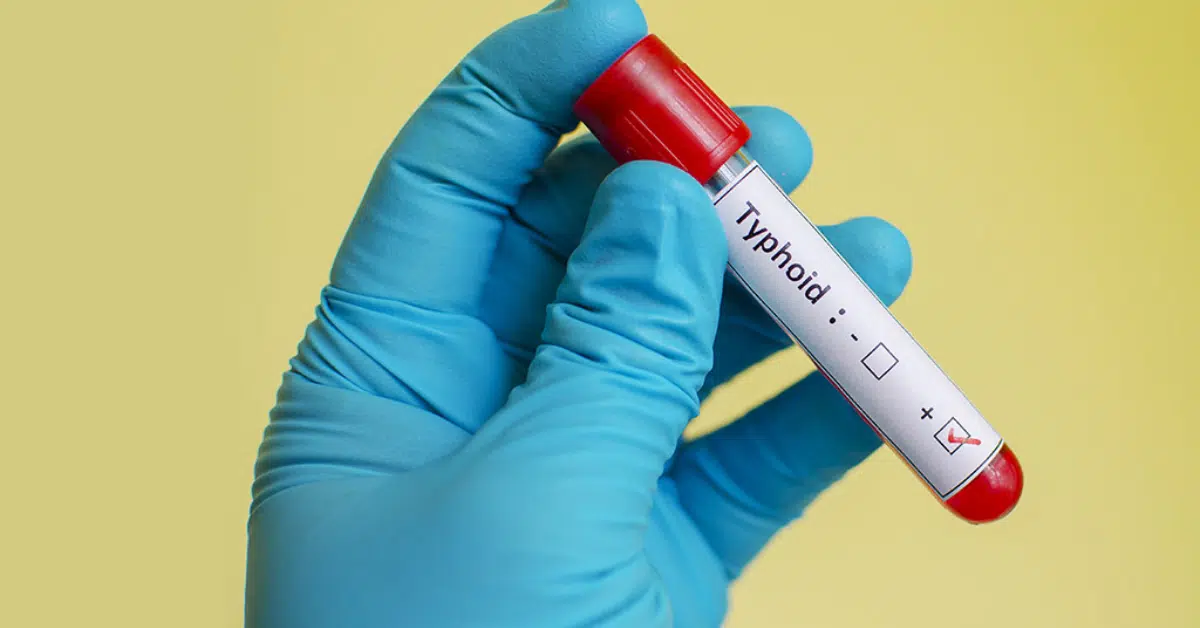Typhoid fever, caused by the bacterium Salmonella typhi, is a serious and potentially life-threatening illness that affects millions of people worldwide each year. Early detection and prompt treatment are essential for managing the disease and preventing complications. One crucial tool in diagnosing typhoid fever is the typhoid blood test, which plays a pivotal role in guiding treatment decisions and ensuring optimal patient care.
Also Read: Top 10 facts about Blood Test in Patiala 2024
Understanding Typhoid Blood Test
The typhoid blood test, also known as the Widal test or typhoid serology, is a diagnostic test used to detect the presence of antibodies in the blood that are specific to Salmonella typhi. These antibodies develop in response to infection with the bacterium and can be detected through a simple blood test. The typhoid blood test is often performed when a patient presents with symptoms suggestive of typhoid fever, such as high fever, headache, abdominal pain, and diarrhea.
Diagnosis and Treatment
Diagnosing typhoid fever early is crucial for initiating appropriate treatment and preventing complications. The typhoid blood test plays a central role in confirming the diagnosis of typhoid fever and distinguishing it from other similar illnesses. If the test results are positive for Salmonella typhi antibodies, it indicates an active infection, and treatment should be initiated promptly.
Role in Treatment Monitoring
In addition to diagnosing typhoid fever, the typhoid blood test also plays a role in monitoring the effectiveness of treatment. Serial blood tests may be performed during the course of treatment to assess the patient’s response to antibiotics and determine whether the infection is being adequately controlled. Monitoring antibody levels over time can help healthcare providers adjust treatment as needed to ensure optimal outcomes for the patient.
Importance of Timely Testing
Timely testing for typhoid fever is essential for guiding appropriate treatment decisions and preventing complications. If you experience symptoms suggestive of typhoid fever, such as prolonged fever, abdominal pain, or diarrhea, it’s crucial to seek medical attention promptly. Your healthcare provider may recommend a typhoid blood test to confirm the diagnosis and initiate treatment as soon as possible. Remember that early detection and treatment are key to successfully managing typhoid fever and preventing serious complications.
Types of Typhoid Blood Tests
There are several types of typhoid blood tests available, each with its own advantages and limitations. The Widal test, for example, detects antibodies against specific antigens of Salmonella typhi and is commonly used in regions where the bacterium is endemic. However, it can produce false-positive results and may not be reliable for diagnosing acute infections. Other tests, such as the Typhoid IgM and IgG tests, detect antibodies produced by the immune system in response to infection and may offer faster and more accurate results. PCR (polymerase chain reaction) tests, which detect the genetic material of the bacterium, can also be used to diagnose typhoid fever, especially in the early stages of infection.
Role in Public Health
In addition to guiding individual patient care, typhoid blood tests play a crucial role in public health surveillance and disease control efforts. By monitoring the prevalence of typhoid fever within a community or region, public health authorities can implement targeted interventions to prevent outbreaks and reduce transmission. This may include measures such as improved sanitation, access to clean water, vaccination campaigns, and antibiotic treatment for affected individuals. Timely and accurate diagnosis through blood tests is essential for effectively identifying and containing outbreaks of typhoid fever.
Limitations and Considerations
While typhoid blood tests are valuable diagnostic tools, they have certain limitations and considerations that healthcare providers must be aware of. False-positive and false-negative results can occur, particularly in individuals who have been vaccinated against typhoid fever or who have previously been infected with related bacteria. Additionally, the sensitivity and specificity of different tests may vary depending on factors such as the stage of infection, the quality of the testing method, and the prevalence of typhoid fever in the population. Healthcare providers must interpret test results in the context of the patient’s clinical presentation and risk factors to make accurate diagnoses and treatment decisions.
Conclusion
In conclusion, typhoid blood tests play a crucial role in diagnosing and managing typhoid fever, a serious infectious disease that affects millions of people worldwide. These tests provide valuable information that guides treatment decisions, monitors response to therapy, and informs public health interventions. By detecting antibodies specific to Salmonella typhi in the blood, typhoid blood tests help healthcare providers confirm the diagnosis of typhoid fever and initiate appropriate treatment promptly. Despite their limitations, typhoid blood tests remain an essential tool in the fight against typhoid fever, contributing to improved patient outcomes and reduced disease burden globally.
In summary, typhoid blood tests are invaluable tools for diagnosing and managing typhoid fever, aiding in both individual patient care and public health efforts. With various testing methods available, healthcare providers can accurately detect Salmonella typhi antibodies and make informed decisions regarding treatment and disease control. While these tests have limitations, such as potential for false results, their importance in identifying outbreaks and guiding interventions cannot be overstated. By leveraging the power of typhoid blood tests, healthcare professionals can effectively combat typhoid fever and work towards reducing its global impact on public health.



